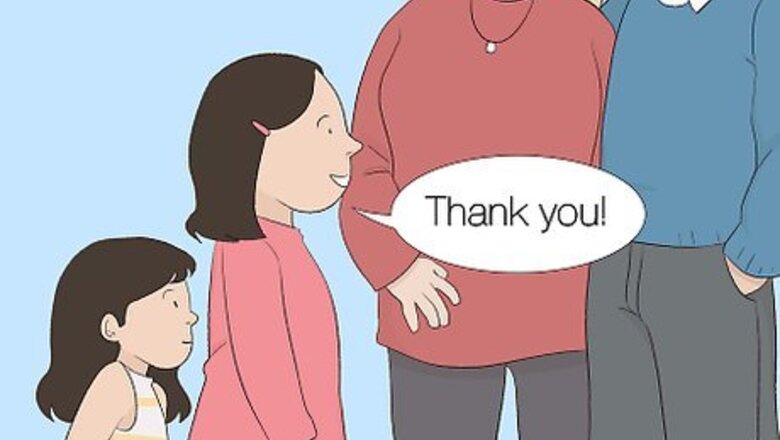
views
Being a Good Role Model
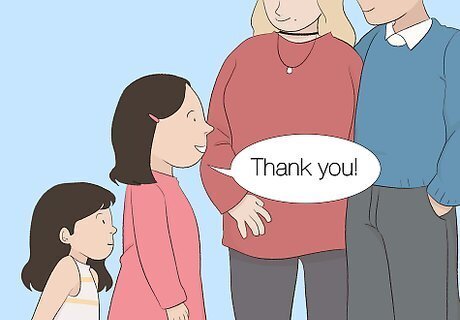
Be respectful toward your parents and show appreciation toward them. Your siblings will probably look to you to see how they should treat your parents, so try to set a good example by being appreciative and kind whenever you can. For instance, try not to complain when your parents ask you to do chores, help them with tasks like putting away groceries, and say "Thank you" when they take you and your siblings out to dinner. In addition to showing your siblings how they should act, this will likely help you have a closer relationship with your parents! Try to do this whether your siblings are watching or not. If you're disrespectful to your parents when your siblings aren't around, they still might pick up on your attitude or hear your parents talking about it later. If you disagree with your parents, don't shout, roll your eyes, or call them names. Instead, wait until you've calmed down, then ask your parents if you can talk about whatever you're upset about. Warning: If you feel that your parents aren't caring for you or your siblings in a way that deserves respect, or if they do anything that puts you in danger, reach out to a family friend or a teacher or counselor at your school.
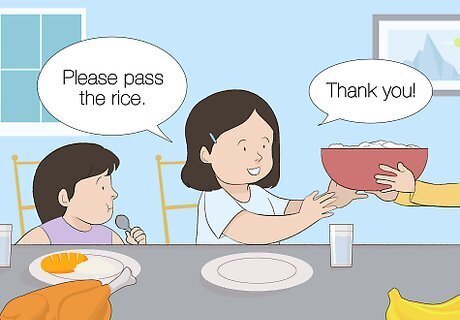
Model polite behavior in front of your siblings. Although it's always important to be courteous, when your siblings are around, try to be extra conscious of being polite. For instance, try to remember to say things like, "Please," "Thank you," and "Excuse me" whenever it's appropriate. Often, your siblings will pick up on this without even realizing it, just because you do it. Other examples of polite behavior include not interrupting when other people are talking, offering to help others if they need it, and having good table manners.
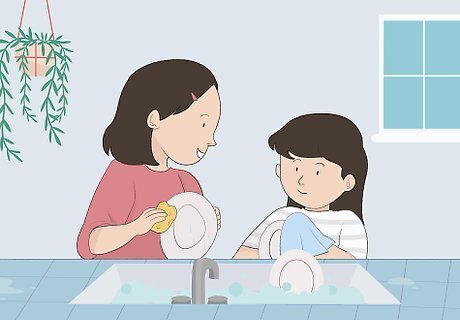
Help out around your home. One great way to be a responsible older sister is to show your younger siblings the importance of being a good helper in your home. That might mean helping your parents do laundry, tidying up your room, getting your siblings ready for school, or setting the table before dinner, for instance. Whatever you do to help, try to do it with a cheerful attitude to inspire your younger siblings to do the same. Try to do these things just for the sake of being helpful, not because you expect any kind of reward for doing it. If you're not sure what you can do to help, try asking one of your parents for ideas. For instance, you might say, "Hey Mom, I know you're really busy. Is there anything I could do to help you with dinner?"
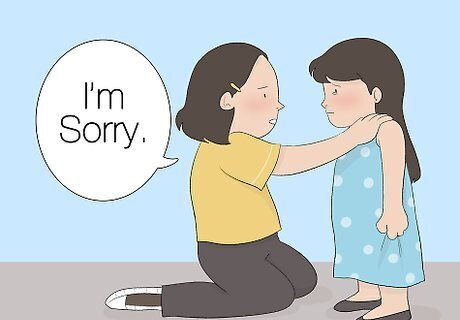
Apologize if you make a mistake. Everyone messes up sometimes, so don't worry about being a perfect big sister. If you do something wrong, own up to it. Say you're sorry, and accept any consequences for your actions. That way, your younger siblings will know that it's okay to make mistakes, as long as you try to fix them and do better next time. For instance, if you're running late for school and you shout at your little sister because she asks to borrow a headband, when you get home you might give her a hug and say something like, "I'm sorry I yelled at you. I was feeling stressed out and I shouldn't have taken it out on you."
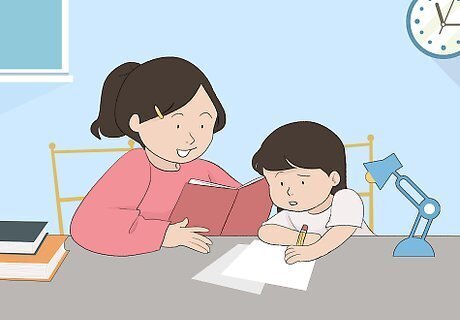
Study hard if you're still in school. Getting a good education is important for your own future, but it can also impact your siblings' futures, as well. If they see you prioritizing your schoolwork, they may be more inclined to study hard as well, since they'll feel like they need to live up to your example. One great way to be a responsible big sister is to help your siblings with their homework. Chances are, you'll already know the information, and you may be able to explain it to them in a new way that helps it make more sense.
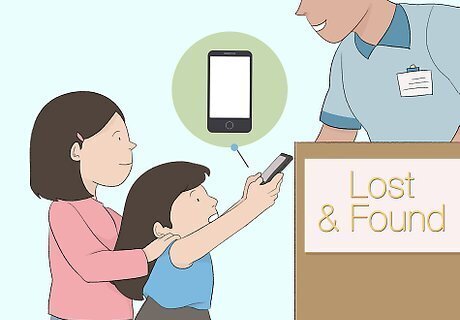
Show empathy for people who are in need. It's easy sometimes to just focus on your own life or your family. However, take some time to put yourself in other peoples' shoes. Even if you don't feel like there's anything you can do to help, something as small as being kind to someone can help shape how your younger siblings see the world. In fact, it may make a bigger difference than even your own parents' attitude toward others. For instance, if you see someone drop a handful of coins, stop and help pick them up. This simple act of kindness can mean a lot to someone who might already be having a bad day. Consider volunteering as a way to make a difference in your community. Volunteering at a soup kitchen or a women's shelter can help teach you empathy while also helping you have a better appreciation for what you have your family have. You can then pass that attitude down to your siblings.
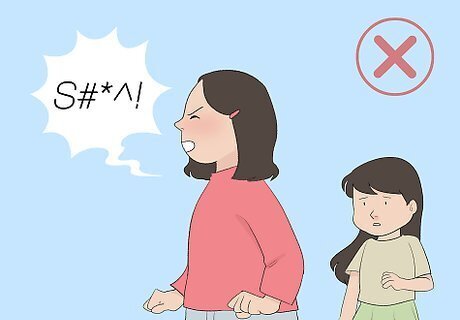
Avoid risky behaviors that your siblings might copy. While it's natural that you're going to want to live your own life, try to avoid things could get you into trouble. When you're faced with a temptation, take a moment to think about what your siblings would think if they saw you. Even if they're not around when you do it, the consequences could still affect them, and they may be more likely to follow down the same path. For instance, don't start smoking, or quit if you already do. If you're a smoker, your younger siblings may be more likely to smoke as well.
Having a Good Relationship with Your Siblings
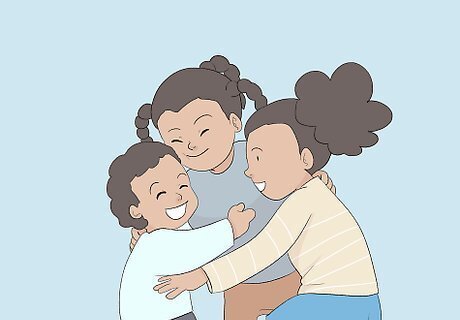
Love your siblings for who they are. Even if you're raised in a very similar way, you and your siblings are all individuals, and you each have your own personalities. Instead of thinking that your siblings should be more like you, accept them for exactly who they are. That will help you have a closer relationship now, as well as in the future when you're all living your own lives. In addition, avoid comparing yourself to your siblings. For instance, if your little brother is an amazing piano player and you're not, don't feel like there's anything wrong with you. Instead, focus on finding your own talent.
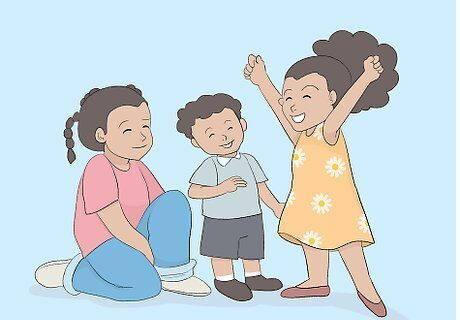
Be patient with your siblings. Younger siblings often seem like they know exactly which buttons to press to make you mad in a matter of seconds. However, they're usually just doing this to get a reaction out of you, and the attention that follows. When they're doing that, take a deep breath to stay calm, then try to redirect them to something positive. For instance, if your brother is copying everything you say, instead of getting really annoyed, try saying something like, "Are you bored? Let's write a song together!"
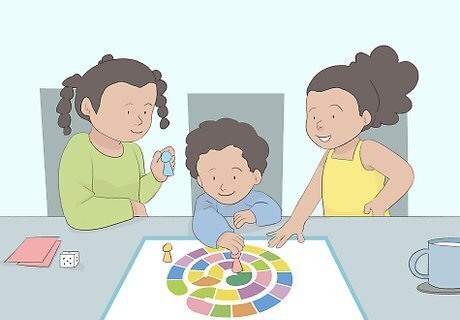
Find things you can enjoy doing together. It can sometimes seem hard to find things that you and your siblings can do together, especially if there's a large age gap between you. However, as the eldest sister, try to take on the responsibility of finding a new hobby or activity to try together. For instance, you teach your siblings how to play a board game, go outside and play ball, or do an art project together. This will give you and your siblings valuable bonding time together, which may make it easier to get along in the long run.
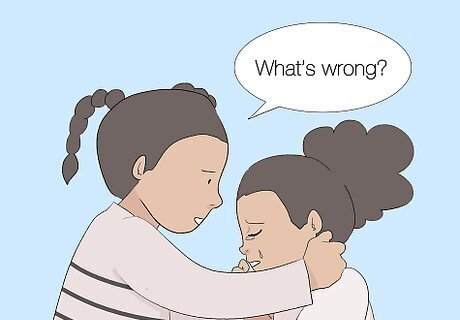
Tell your siblings they can come to you with their problems. Try to be the kind of person your siblings can trust with their problems or secrets. Let them know that you're there to listen, and when they talk to you, give them your full attention whenever it's possible. Then, give them advice that you think will help them. For instance, if one of your little sisters likes a boy at school, let her know that she can tell you about him. Then, don't tease her about the boy or tell anyone else about her crush. Warning: If one of your siblings tells you that they or someone else are in danger, go to an adult.

Allow your siblings to be there for you too. It can sometimes feel a little strange to be open with someone who's much younger than you, but if you want a close relationship with your siblings, you have to be willing to lean on them. If you're having a hard time, talk to your sibling about it in an age-appropriate way. It might just make you feel better! For instance, if you're feeling overwhelmed by managing your schoolwork and all of your after-school activities, try opening up to your little sister about it. You might be surprised by the insight she can offer!
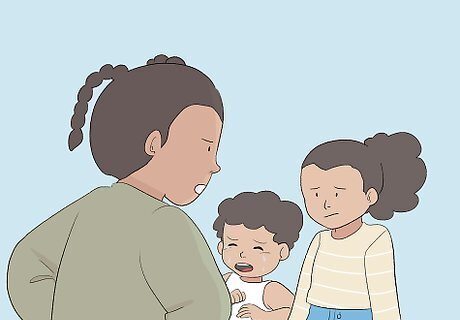
Be mature during conflicts with your siblings. Even if you try your best to be patient, it's almost inevitable that you'll fight with your siblings at some point. However, it's easy to say and do hurtful things when you're mad, so it's best to walk away if you can. Once you feel yourself starting to heat up, take a few deep breaths, then ask if you can have some time alone. When you feel more calm, you can try to talk to your sibling about what happened, if you'd like. For instance, if your brother was horseplaying and accidentally tore your sweater, you might want to yell at him or even hit him. However, it's important to calm yourself down, then later, explain that he really upset you by being careless. Sometimes, your younger siblings might not respect your need for privacy or space. If that happens, ask an adult to intervene, put on a pair of headphones, or shut yourself in the bathroom for a few minutes.
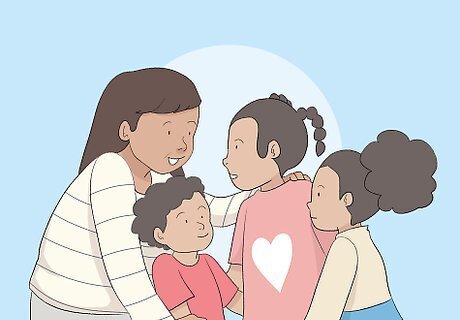
Ask an adult for help if you don't feel you can handle a situation. Asking for help when you need it actually makes you seem more responsible, so it's an important part of being a good big sister. If your sibling tells you that they're having a problem that an adult needs to fix, for instance, you should go to your parents or someone else you trust. It's also a good idea to find an adult if your sibling threatens or hits you, or if an argument gets out of hand and you need help resolving it. Immediately go to an adult if your sibling or someone else is in danger. For example, you should tell an adult if your sibling is being bullied, threatens self-harm, or tells you that one of their friends is being abused. Your sibling might be mad at you if you go to an adult, but hopefully, they'll appreciate it as they get older and reflect on the experience.



















Comments
0 comment